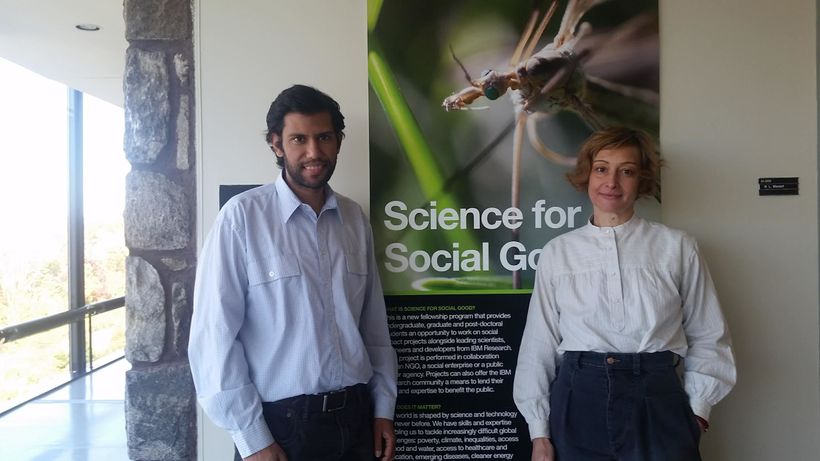
Kush Varshney and Aleksandra Mojsilović at IBM’s T. J. Watson Research Center in Yorktown Heights, NY where they lead research on artificial intelligence and machine learning. (credit: IBM)
IBM’s Open Source of Cancer Program Data Part of Social Good Mission
Curing cancer might happen quicker if AI programmers put their heads together and search for answers, according to technology company IBM, which has made its extensive data and AI tools openly available online.
According to a story on ZDnet.com, IBM released three cancer-related AI projects to the world, which it will publicize and explain at the 18th European Conference on Computational Biology (ECCB) and the 27th Conference on Intelligent Systems for Molecular Biology (ISMB), which will be held in Switzerland later this month.
In a press release, IBM said it wants to generate interest in its programs to tackle cancer. The three public projects include:
· Using machine learning program called PaccMann (the Prediction of Anticancer Compound Sensitivity with Multi-modal Attention-based Neural Networks) to speed up development of cancer-treating drugs.
· A tool called INtERAcT (Interaction Network Interference from Vector Representation of Words) to automate knowledge extraction from scientific publications.
· Predicting exactly how cancer will progress based on IBM’s PIMKL (Pathway-Induced Multiple Kernel Learning) model. The machine-learning algorithm succeeds in predicting and interpreting complicated molecular data drawn from diseased tissue samples.
IBM said it seeks to accelerate the battle against cancer, the second leading cause of death worldwide after heart disease.
“Our goal is to deepen our understanding of cancer to equip industries and academia with the knowledge that could potentially one day help fuel new treatments and therapies,” IBM said in a press release.
IBM launched its Science for Social Good initiative in 2016 to advance health-related programs and benefit the public more rapidly by sharing it with more than 110 researchers who contribute time to help further them along. The 28 projects have included “Prescribing Guidelines for Addressing the Opioid Epidemic,” “Causal Pathways Out of Poverty,” and “Repurposing Drugs for Cancer Treatment.”
read more at Huffpost.com







Leave A Comment